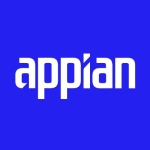What is our primary use case?
We use Informatica Axon primarily to manage product attributes with different roles and responsibilities across various business units. This involves complex approval processes and workflows tailored to each business unit. We have four to five business units.
Additionally, we perform data quality checks to make sure everything goes through proper authorization and adherence to compliance guidelines.
Different teams, including our compliance group and business unit-specific groups, so there are some parallel workflows and nested workflows within Informatica Axon. The platform also enables report generation, email alerts, and other functionalities.
We have a small vendor team with expertise in Informatica, but the majority of the involvement (80%) is directly from the client, with only 20% vendor participation.
How has it helped my organization?
Informatica Axon has significantly improved our manual processes.
For example, if you needed to onboard a product or a particular customer, we were initially using just an Excel sheet. The exchange of Excel sheets happened via SharePoint or through emails, and then it needed approval. There are different stakeholders across regions, and we are a multi-channel company.
For example, we have teams in Brazil, Mexico, Taiwan, Japan, and the US, across different regions, as well as Canada and Asia Pacific. Each business unit has different roles and responsibilities. When managing a certain set of attributes, you have to properly follow the governance process. All the governance processes were in email, SharePoint, or document before we implemented Axon.
But now, we can create forms and define that governance process, including rules and responsibilities. Many things are automated, showing how the workflow cycle goes, where it goes, and who's working on what. From a data transparency standpoint, we know what is what, where it is coming from, and what the next action is. Some quality rules we implemented automatically control who is accessing the information.
The governance process was fully manual before, but Axon helped us configure those processes, giving us more visibility, transparency, and control over the data. We don't fully use it for every business unit yet, so we are going phase by phase. So far, we have implemented it for three business units, each with different rules, regulations, and compliance requirements. We were able to accommodate all these principles.
Everyone who uses the tool likes it so far, which is a success. As we move other business units, we'll be utilizing more of its capabilities. This major win reduced the time required for manual tasks, follow-ups, and errors. It has made the process quicker and less error-prone, which is a visible benefit from the tool.
Data Integrity Challenges:
We use various Informatica products, including those for integrations and data warehousing. So, maintaining data integrity within Informatica Axon itself is not a significant challenge.
The primary challenge lies in getting everyone on board with the governance process. We have not yet fully migrated all of our organization's internal processes and interactions to Axon. We are going module by module, which sometimes requires compromising on data elements shared across different streams that haven't yet been incorporated into the governance process because governance and quality come hand in hand.
This is a gap in our internal processes and not a shortcoming of the tool itself. Governance and quality are intertwined, and while Axon assists with governance, we need to establish data quality measures beforehand. We lack some data quality elements and are actively working on improving this by cleaning up, deduplicating, and standardizing data across the organization.
What is most valuable?
The most valuable features of Informatica Axon are the reports and statistics. It provides very good insights into pending tasks, completed tasks, and areas requiring follow-up or approval. There are various checkpoints. In one report, we can see the overall status of the system.
Additionally, Informatica Axon has many out-of-the-box features when we want to configure stuff for workflows, surpassing those of other tools we evaluated, like Collibra. But Informatica is a very established tool that offers a lot of pre-configurations when we govern the workflows. So, these out-of-the-box features are much more robust, and reporting is much more robust compared to other tools.
Data Lineage Feature:
Data lineage is there. But not everyone is into it. We have a lot of legacy applications, and consolidation of the data into our master data management is also a parallel project going on. Right now, Informatica Axon has a fantastic lineage feature, but we do not fully use that capability in our team because there are a lot of prerequisites that we need to set before we can utilize the lineage.
There are very small components where we can see some lineage. For example, if you have product dimensions or dimension-related attributes, we can see how the data lineage is going through. But for other activities, our data is distributed across different platforms and involves about 43 to 50 legacy systems. First, we are in the process of consolidating them into one hub and then do some cleanup. That would be the biggest feature for us to start with this data lineage. Right now, we don't use that capability extensively.
What needs improvement?
The user interface could be more intuitive. Currently, it's not very user-friendly, and users need to be thoroughly trained to use the tool effectively.
Additionally, more integration features, like third-party plugins for address search and other functionalities, would be helpful for users across different geographies. While some integrations exist in other Informatica products, they are not available in Axon.
Search enhancements would also be beneficial.
For how long have I used the solution?
I have been using Informatica Axon for a couple of years.
What do I think about the stability of the solution?
I would rate the stability a six out of ten because there are no critical issues stopping their jobs. It's almost stable for whatever we have done. Some issues come up, and we fix them, but overall, I'll rate it six out of ten.
What do I think about the scalability of the solution?
In our current use cases, we don't see any big challenges with Informatica Axon's performance. But when the volumes increase or we gradually onboard more users, we want to check the performance.
For the past couple of years, we have onboard one by one and haven't faced any performance problems. But, there are some clients and case studies where they faced performance problems when multiple processes were running simultaneously. This is something we keep in mind as we onboard other business units.
I would rate the scalability six out of ten for now because we need to explore more. Other business units should also come and see how scalable it is, but for now, it's six out of ten.
There are multiple units. We have around 50 to 60 business units, and currently, only three of them are using it. It is used everyday in our organisation.
How are customer service and support?
The customer service and support were with us. It's more about fitting our data structure to Axon rather than the product's capability.
We had to do a lot of design work and make adjustments to incorporate everything. Informatica really helped with the initial setup, but it also depends on the contract.
We only had normal support without an Informatica consultant onboarded due to budget issues. Everything was done through tickets and our own efforts. Maybe that's another reason we struggled.
Support helped around seven out of ten. But it's beyond their contract. Support can only do certain things. For services, you need to hire an Informatica consultant. Our team wasn't ready to hire one due to budget issues. So that's the reason we faced challenges. But as far as support is concerned, they were decent.
How would you rate customer service and support?
Which solution did I use previously and why did I switch?
We didn't use another solution. Everything was manual. Informatica Axon is the one we chose. There were some other bidding processes, but I was not involved in the selection process.
How was the initial setup?
I would rate my experience with the initial setup a two out of ten, with one being difficult and ten being easy.
Initially, we didn't have the expertise for the tool from the client's end. We had to depend on Informatica for that. There were some initial infrastructure issues. When we got the proposal and started implementing it, there were new findings that we had to fit according to our environment.
Maybe it's because we weren't well-prepared for expectations. For example, if you want to set up and get started in a week or two, it took us two months for the initial setup and to migrate the data. We faced a lot of technical challenges.
Things didn't fit in properly, so we needed to make adjustments. But, again, it's our personal experience with our client. It might not be a common issue for others, but the initial setup was difficult, and we struggled a lot, so I would rate it as two out of ten.
But after that, it's all good. Once we set it up and started configuring things, everything was more in control, and we didn't face any problems. But the first-time setup was definitely a challenge.
It took us two months to deploy the solution. The most time-consuming part was the data structure and migration.
What about the implementation team?
For us, we took two resources for the deployment process because only two were available at the time. But it depends on each project. We had two resources fully dedicated to this work.
One of them was a normal Informatica expert developer, and the other was a business analyst who was also a data modeler.
What was our ROI?
I would estimate a minimum guarantee of about 60% return on investment. We are yet to explore a lot of features, like data lineage and migration of business units. But if we migrate everything into it, we can expect a 50% to 60% return on investment, for sure.
What's my experience with pricing, setup cost, and licensing?
For licensing, all I know is the number of users matters. It's not about the volume of data; it's more about the number of users. If more users are added, there's an additional cost.
We only use out-of-the-box features and haven't asked for any customization, so we haven't incurred additional costs. However, when we migrate all 53 business units, there might be additional costs. As of now, we don't have any extra costs.
What other advice do I have?
I would recommend using it because every tool and technology has its pros and cons. If it fits with your organization, especially if you already have the Informatica suite of products in your architecture, Informatica Axon will fit in very easily. Even if you are on a different stack, it might still work.
One advantage of Informatica is that they have been in this industry for a long time. They have a strong background in handling data, which is a positive aspect of Informatica Axon. I would definitely recommend it if it meets your standards.
Overall, I would rate it a six out of ten; we have yet to utilize all the features. From the organization's standpoint, it has only helped certain business units so far. Additionally, the user intuitiveness is less, and there are some performance issues here and there. I'm not confident enough to give it a nine out of ten because we haven't fully explored the product yet. It meets expectations but does not exceed them, which is why I rate it a six.
Which deployment model are you using for this solution?
Public Cloud
If public cloud, private cloud, or hybrid cloud, which cloud provider do you use?
Amazon Web Services (AWS)
Disclosure: My company does not have a business relationship with this vendor other than being a customer.





















